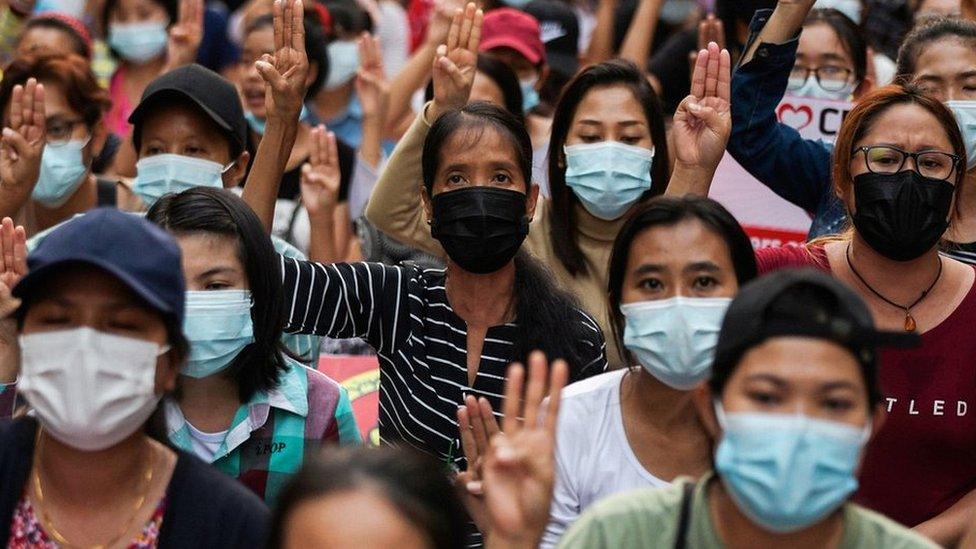Myanmar military take rebel town of Mindat, Chinland
- Published
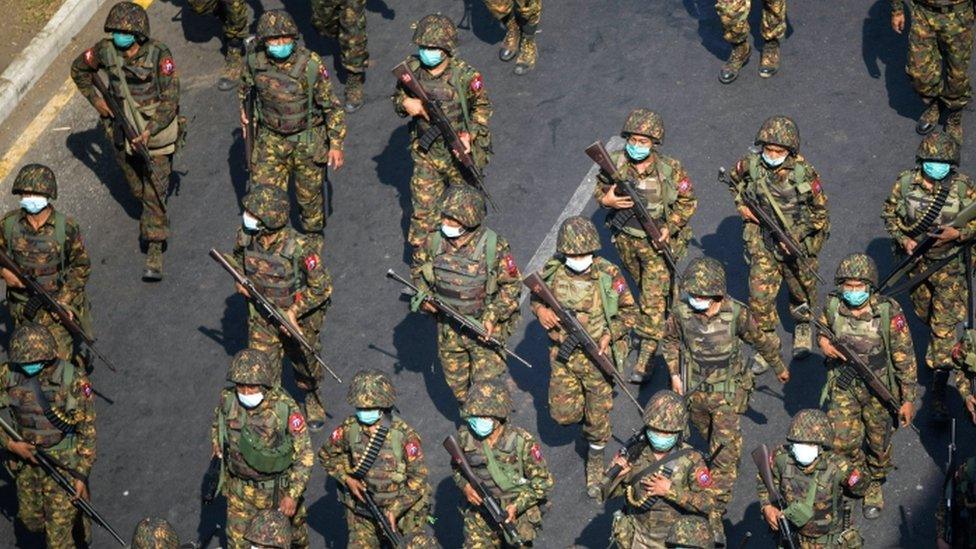
Myanmar's military took control of the country in a coup in February
Myanmar's military has entered a small town in western Chin state which took up arms against them three weeks ago.
Activists from the volunteer Chinland Defence Force say they have retreated from Mindat to spare the town further bombardment.
Mindat is one of several towns where opponents of the military have armed themselves.
Nearly 800 people have died in mainly unarmed protests at February's coup which ousted the elected government.
BBC South East Asia correspondent Jonathan Head says the army now appears to control Mindat.
For three weeks they have been fighting against local people armed mainly with homemade hunting guns, and dozens of soldiers are reported to have been killed.
The rebels said six of their fighters had died.
Some of the population of Mindat is believed to have fled into the surrounding forests. Others remain trapped in the town.

"We will not stay any more in the town... but we will come back to attack soon," a spokesman for the rebel group said, quoted by AFP news agency. "We only have homemade guns. This was not enough."
The army was forced to use helicopters to bring in troop reinforcements, as at least three of its road convoys were ambushed.
Local residents in Mindat set up what they called a People's Administration Team, stating that they did not recognise the authority of the military government.
Earlier this week the government declared martial law in the town. It has described those defying its authority there as terrorists, and says it will set up a military tribunal to put on trial those responsible for attacks on the security forces.
The US and UK have condemned the violence.
"The military's use of weapons of war against civilians, including this week in Mindat, is a further demonstration of the depths the regime will sink to to hold onto power," the US embassy said in a statement.
"Attacks on civilians are illegal and cannot be justified," the British embassy said.
Myanmar's military has justified the February takeover by alleging there had been widespread fraud during a general election late last year which had returned elected leader Aung San Suu Kyi and her National League for Democracy party (NLD) to power.
The military promised instead that it would hold "free and fair" elections once the state of emergency is over.
But it has been met with widespread protests - which it has brutally suppressed.
"They have guns but we have people": Inside Myanmar’s Spring Revolution
Related topics
- Published26 April 2021
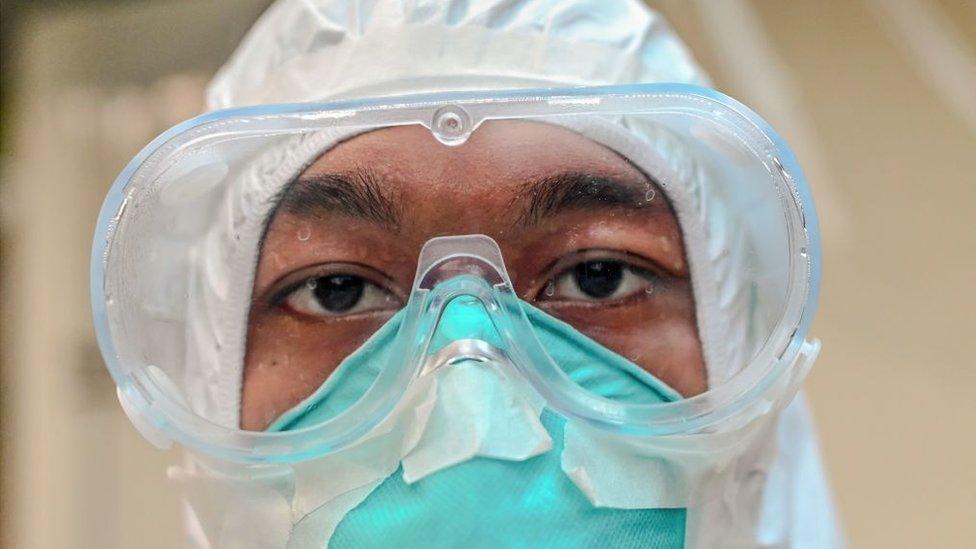
- Published13 April 2021
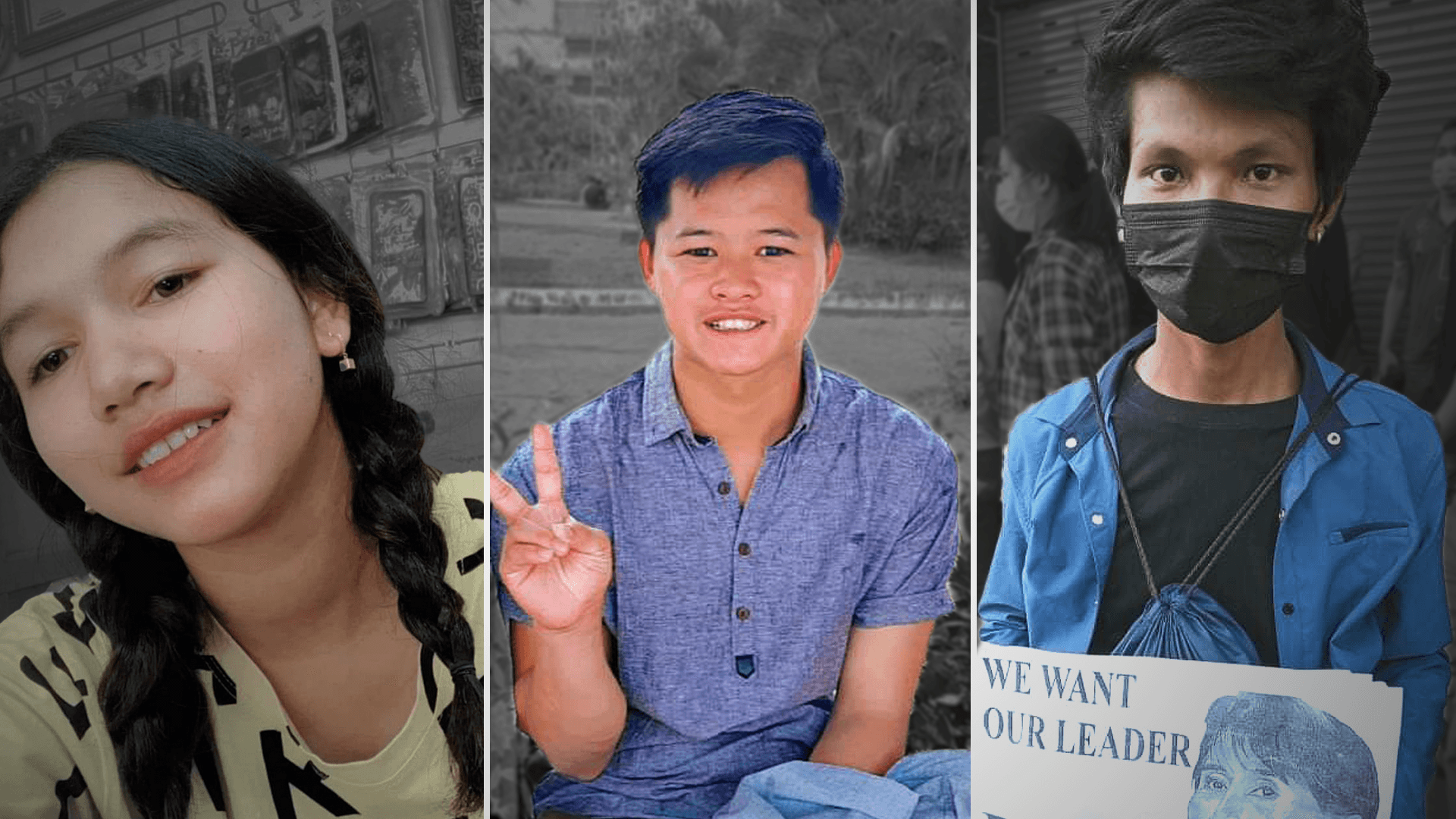
- Published9 April 2021
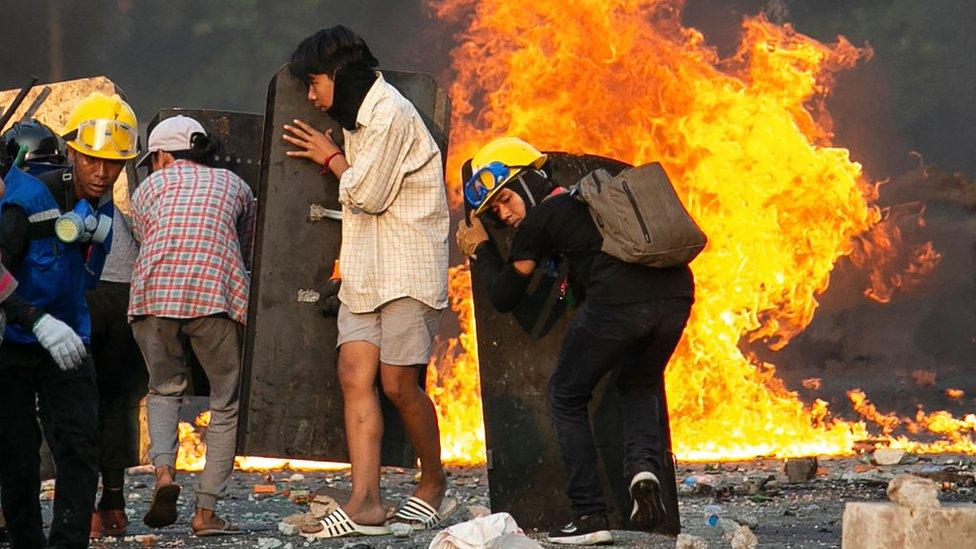
- Published25 July 2022
